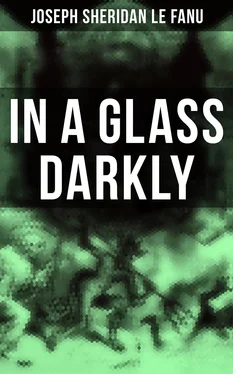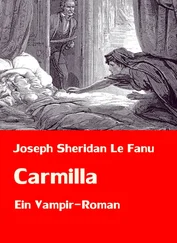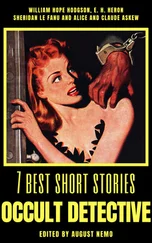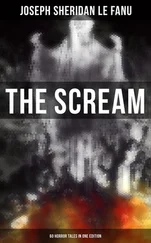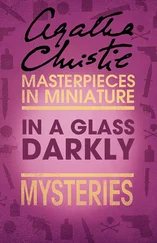There is no doubt that Mr. Jennings’ health does break down in, generally, a sudden and mysterious way, sometimes in the very act of officiating in his old and pretty church at Kenlis. It may be his heart, it may be his brain. But so it has happened three or four times, or oftener, that after proceeding a certain way in the service, he has on a sudden stopped short, and after a silence, apparently quite unable to resume, he has fallen into solitary, inaudible prayer, his hands and his eyes uplifted, and then pale as death, and in the agitation of a strange shame and horror, descended trembling, and got into the vestry-room, leaving his congregation, without explanation, to themselves. This occurred when his curate was absent. When he goes down to Kenlis now, he always takes care to provide a clergyman to share his duty, and to supply his place on the instant should he become thus suddenly incapacitated.
When Mr. Jennings breaks down quite, and beats a retreat from the vicarage, and returns to London, where, in a dark street off Piccadilly, he inhabits a very narrow house, Lady Mary says that he is always perfectly well. I have my own opinion about that. There are degrees of course. We shall see.
Mr. Jennings is a perfectly gentlemanlike man. People, however, remark something odd. There is an impression a little ambiguous. One thing which certainly contributes to it, people I think don’t remember; or, perhaps, distinctly remark. But I did, almost immediately. Mr. Jennings has a way of looking sidelong upon the carpet, as if his eye followed the movements of something there. This, of course, is not always. It occurs now and then. But often enough to give a certain oddity, as I have said, to his manner, and in this glance traveling along the floor there is something both shy and anxious.
A medical philosopher, as you are good enough to call me, elaborating theories by the aid of cases sought out by himself, and by him watched and scrutinized with more time at command, and consequently infinitely more minuteness than the ordinary practitioner can afford, falls insensibly into habits of observation, which accompany him everywhere, and are exercised, as some people would say, impertinently, upon every subject that presents itself with the least likelihood of rewarding inquiry.
There was a promise of this kind in the slight, timid, kindly, but reserved gentleman, whom I met for the first time at this agreeable little evening gathering. I observed, of course, more than I here set down; but I reserve all that borders on the technical for a strictly scientific paper.
I may remark, that when I here speak of medical science, I do so, as I hope some day to see it more generally understood, in a much more comprehensive sense than its generally material treatment would warrant. I believe the entire natural world is but the ultimate expression of that spiritual world from which, and in which alone, it has its life. I believe that the essential man is a spirit, that the spirit is an organized substance, but as different in point of material from what we ordinarily understand by matter, as light or electricity is; that the material body is, in the most literal sense, a vesture, and death consequently no interruption of the living man’s existence, but simply his extrication from the natural body — a process which commences at the moment of what we term death, and the completion of which, at furthest a few days later, is the resurrection “in power.”
The person who weighs the consequences of these positions will probably see their practical bearing upon medical science. This is, however, by no means the proper place for displaying the proofs and discussing the consequences of this too generally unrecognized state of facts.
In pursuance of my habit, I was covertly observing Mr. Jennings, with all my caution — l think he perceived it — and I saw plainly that he was as cautiously observing me. Lady Mary happening to address me by my name, as Dr. Hesselius, I saw that he glanced at me more sharply, and then became thoughtful for a few minutes.
After this, as I conversed with a gentleman at the other end of the room, I saw him look at me more steadily, and with an interest which I thought I understood. I then saw him take an opportunity of chatting with Lady Mary, and was, as one always is, perfectly aware of being the subject of a distant inquiry and answer.
This tall clergyman approached me by-and-by; and in a little time we had got into conversation. When two people, who like reading, and know books and places, having traveled, wish to discourse, it is very strange if they can’t find topics. It was not accident that brought him near me, and led him into conversation. He knew German and had read my Essays on Metaphysical Medicine which suggest more than they actually say.
This courteous man, gentle, shy, plainly a man of thought and reading, who moving and talking among us, was not altogether of us, and whom I already suspected of leading a life whose transactions and alarms were carefully concealed, with an impenetrable reserve from, not only the world, but his best beloved friends — was cautiously weighing in his own mind the idea of taking a certain step with regard to me.
I penetrated his thoughts without his being aware of it, and was careful to say nothing which could betray to his sensitive vigilance my suspicions respecting his position, or my surmises about his plans respecting myself.
We chatted upon indifferent subjects for a time but at last he said:
“I was very much interested by some papers of yours, Dr. Hesselius, upon what you term Metaphysical Medicine — I read them in German, ten or twelve years ago — have they been translated?”
“No, I’m sure they have not — I should have heard. They would have asked my leave, I think.”
“I asked the publishers here, a few months ago, to get the book for me in the original German; but they tell me it is out of print.”
“So it is, and has been for some years; but it flatters me as an author to find that you have not forgotten my little book, although,” I added, laughing, “ten or twelve years is a considerable time to have managed without it; but I suppose you have been turning the subject over again in your mind, or something has happened lately to revive your interest in it.”
At this remark, accompanied by a glance of inquiry, a sudden embarrassment disturbed Mr. Jennings, analogous to that which makes a young lady blush and look foolish. He dropped his eyes, and folded his hands together uneasily, and looked oddly, and you would have said, guiltily, for a moment.
I helped him out of his awkwardness in the best way, by appearing not to observe it, and going straight on, I said: “Those revivals of interest in a subject happen to me often; one book suggests an other, and often sends me back a wild-goose chase over an interval of twenty years. But if you still care to possess a copy, I shall be only too happy to provide you; I have still got two or three by me — and if you allow me to present one I shall be very much honoured.”
“You are very good indeed,” he said, quite at his ease again, in a moment: “I almost despaired — I don’t know how to thank you.”
“Pray don’t say a word; the thing is really so little worth that I am only ashamed of having offered it, and if you thank me any more I shall throw it into the fire in a fit of modesty.”
Mr. Jennings laughed. He inquired where I was staying in London, and after a little more conversation on a variety of subjects, he took his departure.
Chapter II.
The Doctor Questions Lady Mary and She Answers
Table of Contents
“I like your vicar so much, Lady Mary,” said I, as soon as he was gone. “He has read, traveled, and thought, and having also suffered, he ought to be an accomplished companion.”
Читать дальше
